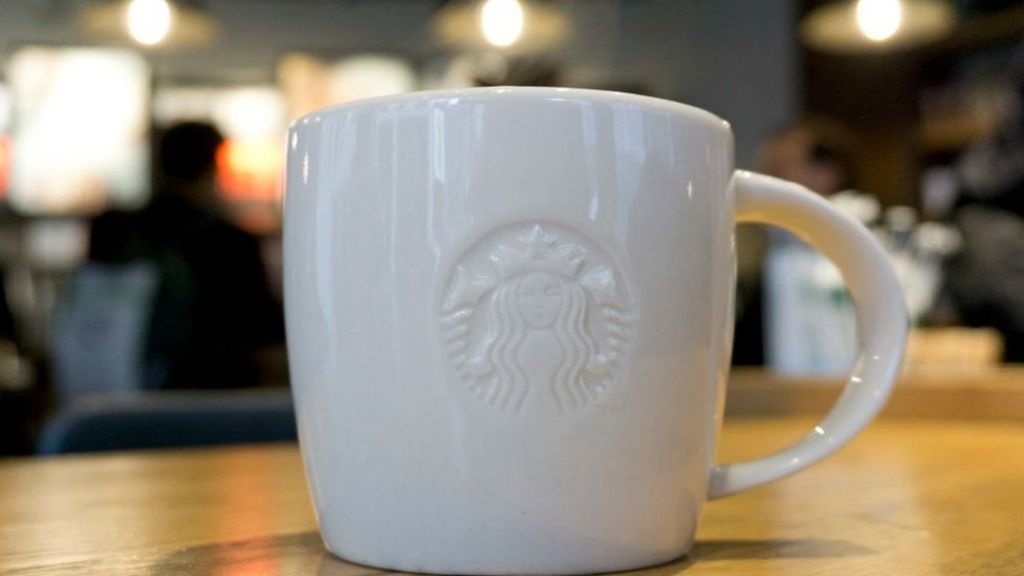Starbucks Cafe's Wi-fi Made Computers Mine Crypto-currency

 Image copyright
Getty Images
Image copyright
Getty Images
Starbucks has acknowledged that visitors to one of its branches were unwittingly recruited into a crypto-currency mining operation.
The wi-fi service provided by one of the coffee chain's Buenos Aires outlets surreptitiously hijacked connected computers to use their processing power to create digital cash.
Starbucks said that it had taken "swift action" to address the problem.
But one expert said it highlighted the risks of using public wi-fi.
It is not clear how long the malware involved was active or how many customers were affected.
The issue was identified only when the chief executive of a New York-based technology company logged into the service and noticed the problem.
Noah Dinkin was alerted to the issue by a delay he experienced before being able to start using the net, and posted his discovery to Twitter.
Although he initially believed the code had been designed to force his laptop to try to create bitcoins, other users noted that it had in fact been designed to mine another digital currency, Monero.
Mining involves solving complicated mathematical equations to verify crypto-currency transactions.
Those involved are attracted by the promise of being rewarded with newly minted "coins" if their computer is first to solve a challenge.
But because lots of processing power is required to have a good chance of success, some people have tried to infect other people's computers with mining code to boost their chances.
Victims' computers are normally targeted via infected websites, but it is relatively unusual for a wi-fi hotspot to be involved.
"As soon as we were alerted of the situation in this specific store last week, we took swift action to ensure our third-party support provider resolved the issue and made the changes needed in order to ensure our customers could use wi-fi in our store safely," a spokeswoman for Starbucks told the BBC.
The company had earlier told the Motherboard news website that it did not "have any concern that this is widespread" across its other stores.
One cyber-security expert said that public wi-fi users should ensure they used up-to-date software and be on the lookout for suspicious activity, to minimise their risks.
"Always be wary when connecting to untrusted networks, public wi-fi hotspots are untrusted to you even if they are provided by a trusted brand," Don Smith, from Secureworks, told the BBC.
"Indeed, connecting to these networks gives the provider an ability to intercept your communications.
"However, we should not scaremonger unnecessarily, these can be useful services and the abuse of these services is definitely the exception not the rule.
"Also, as applications and websites increasingly move to encryption by default - this clearly improves overall security."
From Chip War To Cloud War: The Next Frontier In Global Tech Competition
The global chip war, characterized by intense competition among nations and corporations for supremacy in semiconductor ... Read more
The High Stakes Of Tech Regulation: Security Risks And Market Dynamics
The influence of tech giants in the global economy continues to grow, raising crucial questions about how to balance sec... Read more
The Tyranny Of Instagram Interiors: Why It's Time To Break Free From Algorithm-Driven Aesthetics
Instagram has become a dominant force in shaping interior design trends, offering a seemingly endless stream of inspirat... Read more
The Data Crunch In AI: Strategies For Sustainability
Exploring solutions to the imminent exhaustion of internet data for AI training.As the artificial intelligence (AI) indu... Read more
Google Abandons Four-Year Effort To Remove Cookies From Chrome Browser
After four years of dedicated effort, Google has decided to abandon its plan to remove third-party cookies from its Chro... Read more
LinkedIn Embraces AI And Gamification To Drive User Engagement And Revenue
In an effort to tackle slowing revenue growth and enhance user engagement, LinkedIn is turning to artificial intelligenc... Read more

